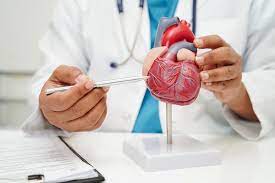Cardiovascular health requires personalized care tailored to each patient’s unique needs. Modern heart centers utilize advanced diagnostic tools and evidence-based practices to facilitate early detection, accurate diagnosis, and effective treatment. This approach supports patients throughout their journey to better cardiac health.
Stress Testing
Stress tests, often performed at a heart center, assess how the heart functions during physical activity or stress induced by medication. They detect blockages, evaluate exercise tolerance, and measure cardiac performance. At heart centers, patients may walk on a treadmill, use a stationary bike, or receive medications that mimic exercise while their heart rhythm and blood pressure are monitored. Some stress tests, like nuclear stress tests or stress echocardiograms, include imaging for a more detailed view of the heart. The results help diagnose conditions, evaluate treatments, and develop personalized exercise plans.
Echocardiogram Technology
Echocardiograms use ultrasound technology to create detailed images of the heart’s structure and function. This non-invasive test allows healthcare providers to evaluate heart chambers, valves, and blood flow patterns without exposing patients to radiation. By providing real-time visualization of cardiac activity, echocardiograms detect various heart conditions, making them a valuable diagnostic tool in cardiology.
Healthcare providers use echocardiograms to assess heart valve function, measure the size of the heart chambers, and evaluate the pumping efficiency of the heart. The test identifies structural abnormalities, fluid around the heart, or blood clots in the cardiac chambers. Different types of echocardiograms, including transthoracic, transesophageal, and stress echocardiograms, provide specific insights. The procedure takes 30-60 minutes, and patients can resume normal activities immediately, with results guiding treatment and monitoring heart health.
Preventative Cardiology
Preventative cardiology focuses on stopping heart disease before it starts. It involves identifying and managing risk factors early through assessments, lifestyle modifications, and medical interventions when necessary. Doctors evaluate blood pressure, cholesterol levels, diabetes status, smoking habits, and family history to assess heart health risks.
Prevention plans are personalized and may include a healthier diet, regular exercise, quitting smoking, and the use of medications. Risk assessments tailor these strategies to each person’s needs. Regular check-ups monitor progress, and plans are adjusted as necessary to maintain heart health.
Education is a key part of heart care. Patients receive guidance on nutrition, exercise, stress management, and taking medications as prescribed. Educational programs help people understand their health and available treatment options. This allows patients to take an active role in their care. Support groups and resources are available to help patients and families maintain long-term heart health.
Heart Center
Heart centers use multidisciplinary teams, including cardiologists, nurse practitioners, dietitians, and exercise physiologists. They work together to provide comprehensive care. The team creates personalized treatment plans and provides ongoing support and guidance. They also coordinate with primary care doctors to create a seamless treatment plan.
Support Your Cardiovascular Health
Heart centers focus on personalized care with thorough evaluations, advanced testing, and preventative strategies. Tests like stress tests and echocardiograms tailor care to individual needs. Preventative cardiology is key to long-term heart health. Talk to your healthcare provider and learn about your testing and prevention options.









Leave a Reply